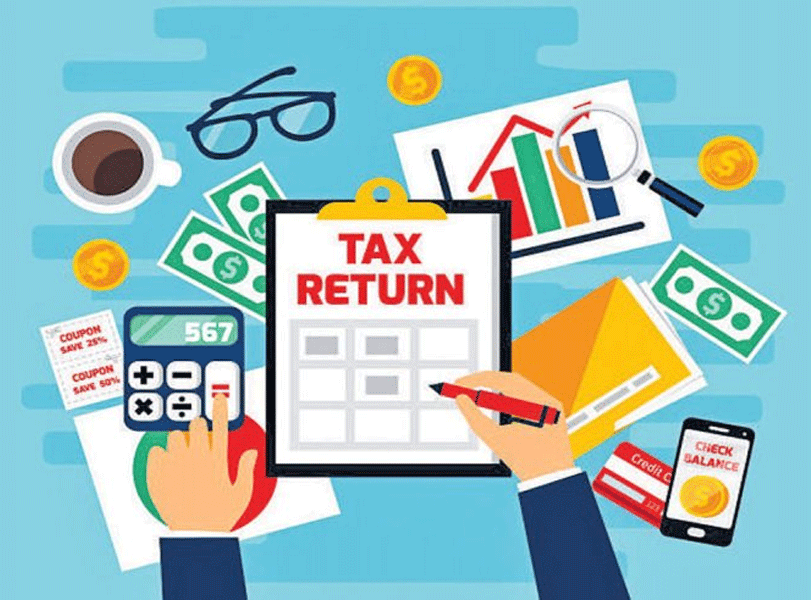
United Arab Emirates is a tax-free country that has no federal income tax, each Emirate has its one income tax decree but it is only restricted to foreign banks and oil companies. UAE in the year 2018 implemented the Value Added Tax. VAT for the UAE is a means of revenue through which it can provide quality benefits. The VAT implemented in the UAE is at a standard rate of 5%.
The VAT is charged to businesses that are registered with the federal tax authority with a verified TRN number. Only a business with a verified TRN number can charge VAT to its sales to the customers.
VAT for businesses
- For businesses whose taxable supplies and imports exceed the mandatory registration threshold of AED 375,000 must register for VAT with the federal Tax authority.
- A business may choose to register for VAT voluntarily if their supplies and imports are less than the mandatory registration threshold, but exceed the voluntary registration threshold of AED 187,500.
For a VAT registered business, it is necessary that they
- Keep a range of business records which will allow the government to check that they have got things right
- Must charge VAT on taxable goods or services they supply
- May reclaim any VAT they’ve paid on business-related goods or services;
For a VAT-registered business, the business must report the amount of VAT charged and the amount of VAT paid to the government regularly. It will be a formal submission and the reporting will likely be made online.

VAT for businesses
Read Also: What is FATCA and How to Registration Online
VAT Refund
Registered companies must submit a VAT return to provide sales details and purchase output VAT and input VAT paid during the tax period. Here, the output VAT is the amount charged in the sales, and the input VAT is the amount paid to the supplier to the buyer/purchaser. A qualified input VAT amount will be allowed to be adjusted with the output VAT amount. After adjusting the output VAT and entering the VAT, the result will result in one of the following conditions.
The VAT payable: If the output VAT amount is greater than the input VAT, the balance is VAT payable and needs to be paid to the FTA.
Refundable VAT: If the VAT output is less than the VAT entered, the excess balance will be refunded.
Simply put, if VAT charges are more than the VAT paid, the business will have to pay the difference to the government. If VAT paid is more than the VAT charged, the business can reclaim the difference.
When to file a tax return
Taxable companies must submit VAT returns to the FTA regularly, usually within 28 days of the end of each type of tax period. The tax period is a specific period in which the taxable amount should be calculated and paid. The standard tax period is;
- Quarterly companies with an annual turnover of fewer than 150 million dirhams
- Companies with an annual turnover of 150 million dirhams or more pay once a month.
The return can be filed on the FTA portal. The business should have all the required documents to file the return. The businesses are required to provide consolidated details of supplies such as total purchases, total sales, input VAT and output VAT.
The business should classify all its supplies like standard rate supplies, zero-rated supplies, exempt supplies or supplies which need a reverse charge mechanism.
How is VAT calculated?
For example, suppose you own a cafe and spend AED100, 000 to buy raw materials. The input tax rate is 5%, so the input tax you are paying is 5% of AED 100,000 = 5,000 AED.
Now, after selling your products (e.g. juices) with purchased raw materials, your sales are AED 200,000. Assuming the output tax is 5%, the output tax you pay is 10,000 AED.
Therefore, the final (net) VAT you should pay is 10,000 AED-5,000 AED = 5,000 AED.
In VAT settlement, you deduct the input VAT from the output VAT. The resulting amount must be reported to the Federal Tax Authority. If the purchase amount exceeds the sales volume during any one period, the difference is negative and the difference will be refunded.
Every business incurs some expenses on a day to day basis, but not all expenses are subject to a refund, expenses which cannot be claimed are:
- Employee expenses
- Motor vehicle expenses for personal use
- Entertainment expenses
Under the GCC VAT refund scheme, now foreign businesses can refund their VAT as well. This is very attractive to businesses and it will grow the foreign direct investment in the UAE i.e. more companies and businesses would like to establish themselves in the UAE. But there are certain conditions for the foreign business;
- The business is resident in a GCC State that has not implemented VAT
- Is a foreign business in a country outside of the GCC and fulfills the following conditions:
- Should not be a Taxable Person
- It should be registered as an establishment with a competent authority in the jurisdiction in which it is established.
- Should not have a place of establishment or fixed establishment in UAE or another State which has implemented VAT
- Should be from a country which provides a refund of VAT to UAE entities in similar circumstances
